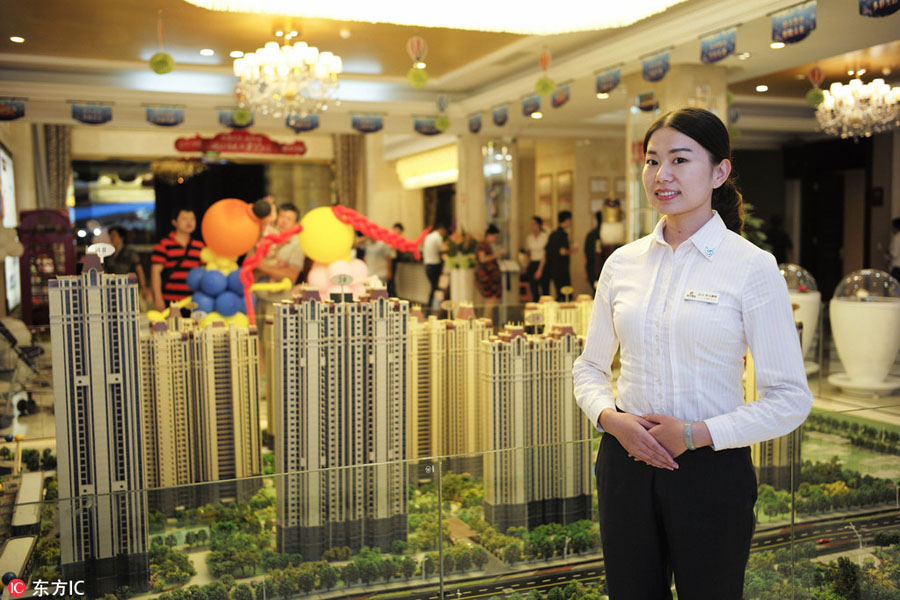Tax policy compromise to avoid hard landing
 |
|
China's car market is likely to continue growing in 2017 as a new favorable tax policy will take effect from January. [Photo provided to China Daily] |
Analysts nevertheless divided over wisdom of stimulus
The automotive market will be saved from a possible hard landing in 2017, now that the authorities have decided on a 25 percent purchase tax discount for those buying cars with engines no larger than 1.6 liters before 2018, according to analysts.
John Zeng, managing director of LMC Automotive Consulting (Shanghai), said he heaved a sigh of relief when the authorities issued the policy on Thursday.
He said LMC had previously estimated that the market growth rate in 2017 would turn negative, as the current 50 percent purchase tax discount was set to expire by the end of December.
"Now it has become a 25 percent discount, the chance of a negative growth rate is unlikely; it may reach 2 to 3 percent in 2017, and a similar figure in 2018," Zeng explained.
There were widespread concerns that the market would nosedive in 2017 because the authorities had been tight-lipped and had not confirmed the new policy until a little more than two weeks before the existing one expires.
The purchase tax usually stands at 10 percent of a car's sticker price. To boost stagnant car sales in 2015, the authorities introduced a measure in late September to halve the tax for small cars, which has worked well so far.
Such cars have accounted for 70 percent of passenger car sales every single month this year, totaling 15.6 million from January to November, statistics from the China Association of Automobile Manufacturers show. The CAAM says another 3 million cars are forecast to be sold in December, because people would have to spend 5,000 yuan ($719) more, around one month's pay for those working in big cities, for a car priced at 200,000 yuan if they make the purchase in January.
With their help, the CAAM estimated that the growth rate in 2016 could reach 13 percent year-on-year, almost triple the figure for 2015.
Zhang Zhiyong, an independent auto analyst in Beijing, said the renewed policy is a compromise, because some were advocating extending the 50 percent discount, while others thought that too much stimulation would not be favorable for the auto market's healthy development.
"A sudden removal of the policy would result in a nosedive, so the 25 percent discount is a clever move by the government, which offers stimulus to potential customers and meanwhile enables carmakers to adjust their production."
Engines no larger than 1.6 liters account for a majority of volume car brands in the country.
Sales statistics from January to August show that such cars comprised 75 percent of Ford Motor's total sales in the period, 77 percent of General Motors' cars, and more than 80 percent of Volkswagen's.
Zhang said the double-digit growth rate this year will likely fall to around 7 percent in 2017, before sliding further to 4 or 5 percent in 2018, which he believes is a healthy figure.
Bill Peng, a partner with Strategy&, a consulting group at PricewaterhouseCoopers, said the auto market will not be a rosy picture even with the new discount. "I don't see growth in people's purchasing power and it is estimated that China's GDP growth will be 6.5 percent year-on-year in 2017, lower than this year's performance."
Dong Yang, executive vice-president of the CAAM, said he is disappointed with the 25 percent discount policy.
He said the auto market will sure suffer to some extent and complained that "the government should have attached strategic importance to the move that encourages low emissions cars".
The CAAM, among other organizations, had been lobbying for the policy to become permanent.
Zeng and others are against too much stimulus, insisting that the market should have the final say. He said the favorable policies are like drug-using athletes that produce abnormally high but unsustainable performance.
"Demand has been overexploited in advance. A growth rate of more than 10 percent is too much. A normal speed is around 4 to 5 percent growth year-on-year," he said.
However, Zeng said the government could consider extending the stimulus again at the end of 2017 if other factors affect the country's economy, including China's trade with the US under the Trump administration.
"If exports fall, the government will stimulate the auto market, which is a powerhouse of the economy," said Zeng.
























